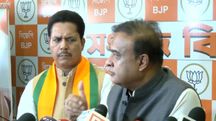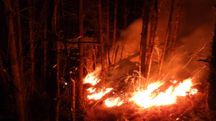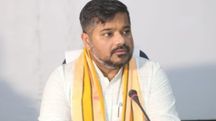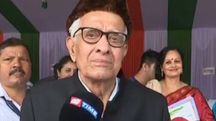‘Even cannabis can cause strokes’: Neurologist warns of rising drug-linked emergencies
Neurologist warns cannabis use can lead to strokes amid rising drug-related emergencies. Public urged to seek immediate medical help if stroke symptoms occur
 Cannabis Plant
Cannabis PlantA leading Indian neurologist has raised concerns over a sharp rise in young people turning up in emergency wards with stroke, seizure and cardiac complications linked to recreational drug use, warning that the growing social acceptance of such substances is fuelling a serious public-health threat.
Dr (Col) Joy Dev Mukherji, a senior neurologist with nearly three decades of clinical experience, told an ANI podcast that even cannabis — often marketed as benign — is capable of triggering “strokes, headaches, lung problems [and] cardiac problems”. He said there is “absolutely no justification” for using recreational substances and described their widening acceptance as “deeply alarming”.
He argued that drugs are being framed as harmless by “powers that be… pushing these drugs”, adding that he believes there is an “ulterior motive” behind narratives suggesting they are safe. “There's nothing like a party drug… it has been coloured as a party drug… but it’s unequivocally dangerous,” he said.
Government data from the Ministry of Social Justice and Empowerment show that cannabis and opioids remain among the most commonly used substances nationwide. As of 2019, about 3.1 crore people — 2.8 per cent of the population — reported using cannabis in some form, including bhang, ganja and charas. Opioid use was reported by 2.26 crore people, with heroin dominating national consumption. States in the Northeast recorded the highest opioid prevalence, with several exceeding 10 per cent.
Dr Mukherji confirmed that the medical impact is visible on the ground. He said his team encounters “once a week” a young patient — often in their twenties — arriving with a stroke or seizure linked to so-called party drugs. Urine screening, he added, routinely reveals substances the patients initially do not report.
He also dismissed the growing reliance on commercial energy drinks, describing them as products with “no real benefit”, and criticised traditional, unscientific practices still used to treat neurological conditions in rural India. “Epilepsy is still being treated by ‘jharphuk’… stroke management [with] turmeric. That has to stop,” he said.
Calling for urgent policy reforms, he urged the government to expand affordable health insurance, improve emergency evacuation systems and invest in widespread neurological awareness. Better coverage and faster medical response, he said, would significantly improve outcomes for critical patients.
Dr Mukherji concluded that the normalisation of recreational drug use is emerging as one of the most serious health challenges facing young Indians, and insisted that only early intervention, stronger public awareness and firm policy action can reverse the trend.
Copyright©2026 Living Media India Limited. For reprint rights: Syndications Today









